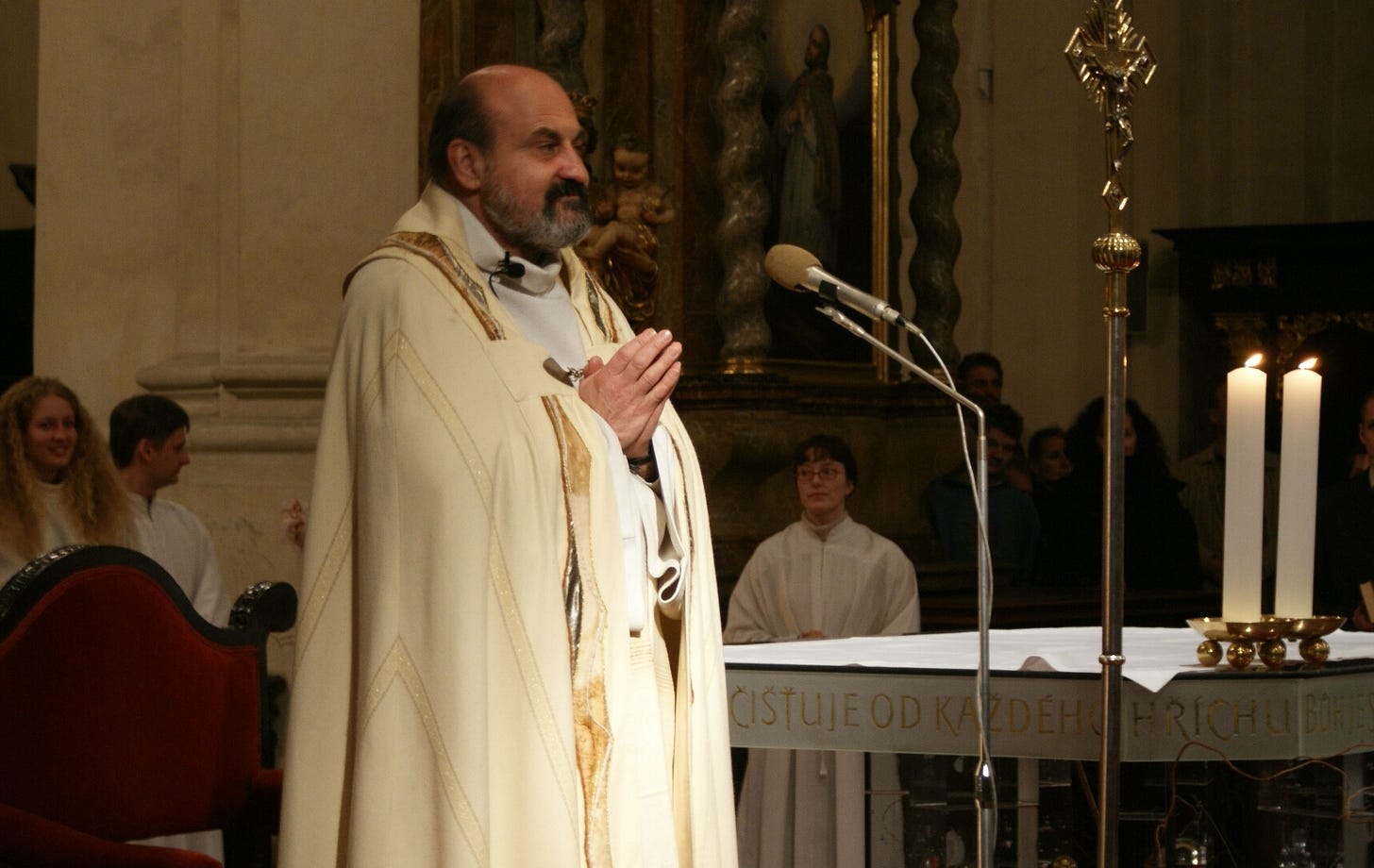In May of 2020 I received my copy of Night of the Confessor: Christian Faith in an Age of Uncertainty by Monsignor Tomáš Halík. In the midst of a global pandemic, I devoured it like my daughter devours strawberries, barely taking time to breathe in between bites, face covered by the end. Halík’s writing helped me process my feelings about following God in the midst of catastrophe and beyond the moment his approach to faith and sharing faith put to words so much of my own experiences. I knew that I had found a valuable companion for my spiritual journey.
Halík is a Catholic theologian and priest who ministered in the Czech underground church during communist rule. His writing expresses a maturity of faith formed in profoundly difficult circumstances. It is a refreshing alternative to both fundamentalism and relativism.
Here are a few of my favorite quotes from the book:
God is Mystery:
Halík is firmly Augustinian here. If you can understand it, it isn’t God. He bucks forms of Christianity that peddle shallow certainty.
“I recall the liberating moment when I realized that perspectivism, that is, the perception that we all look from our own particular limited perspective and fail to see the whole, is no shallow relativism. Truth is a book that none of us has read to the end.” (10)
“Those who wish to seek the living God and truly follow Christ must have the courage to learn to swim in deep water, not in the shallows. God is the depths; He is not to be found in the shallows.” (55-56)
Church Decline is Okay:
Halík is at peace with the decline of religious institutions because he believes that it is a death before resurrection. He sees this moment as a shedding of the excesses and misdirection of religion and an opportunity for theological and spiritual renewal.
“I fear that the notion that a great deal within ourselves, within the Church, within our faith, and within our certainties has to “die off,” to be crucified, in order to make room for the Resurrected one is quite alien to many of us Christians.” (8)
“Christianity allowed itself in the wake of the Enlightenment to be maneuvered into a completely new guise, and it is precisely this form of modern “religion”—not faith, hope, and love—that is in crisis and coming to an end.” (110)
“Many Christians are concerned that Christianity is losing the clear contours it had in earlier ages and is becoming pluralized. But maybe that weakening of the system means in reality that faith is coming closer to life, and the undisguised variety of forms means greater scope to address a broader spectrum of people in the future.” (127)
Sharing Faith is About Companionship:
Since Halík’s theology centers mystery and depth, his evangelism centers walking alongside someone as they grow in their faith. He firmly rejects offering simple answers to complex questions.
“The art of accompanying people on a spiritual journey is ‘maieutical,’ that is, of the nature of the art of the midwife… It is necessary, without any manipulation, to help specific individuals, in their unique situations, to find their way and arrive a solution for which they are capable of accepting responsibility. ‘The law is clear,’ but life is complex and multivalent; sometimes the right answer is to have the courage and patience to keep asking the question.” (3)
“When someone is introduced into the faith they need to be told clearly they are being introduced into a world of mystery and depth.” (56)
Conclusion
Our understanding of God and following God influences how we reach out. If we assume we have God all figured out—that Christianity gives us simple answers—then we have no need for listening. On the other hand, if God is mystery, if truth is indeed a book that none of us have read to the end, then listening (to God and neighbor) is central to our faith and our church.
In an article released today, Halík says it well, “I think in the church we know many good answers but we have forgotten the questions, and the answers without questions are dead.”




